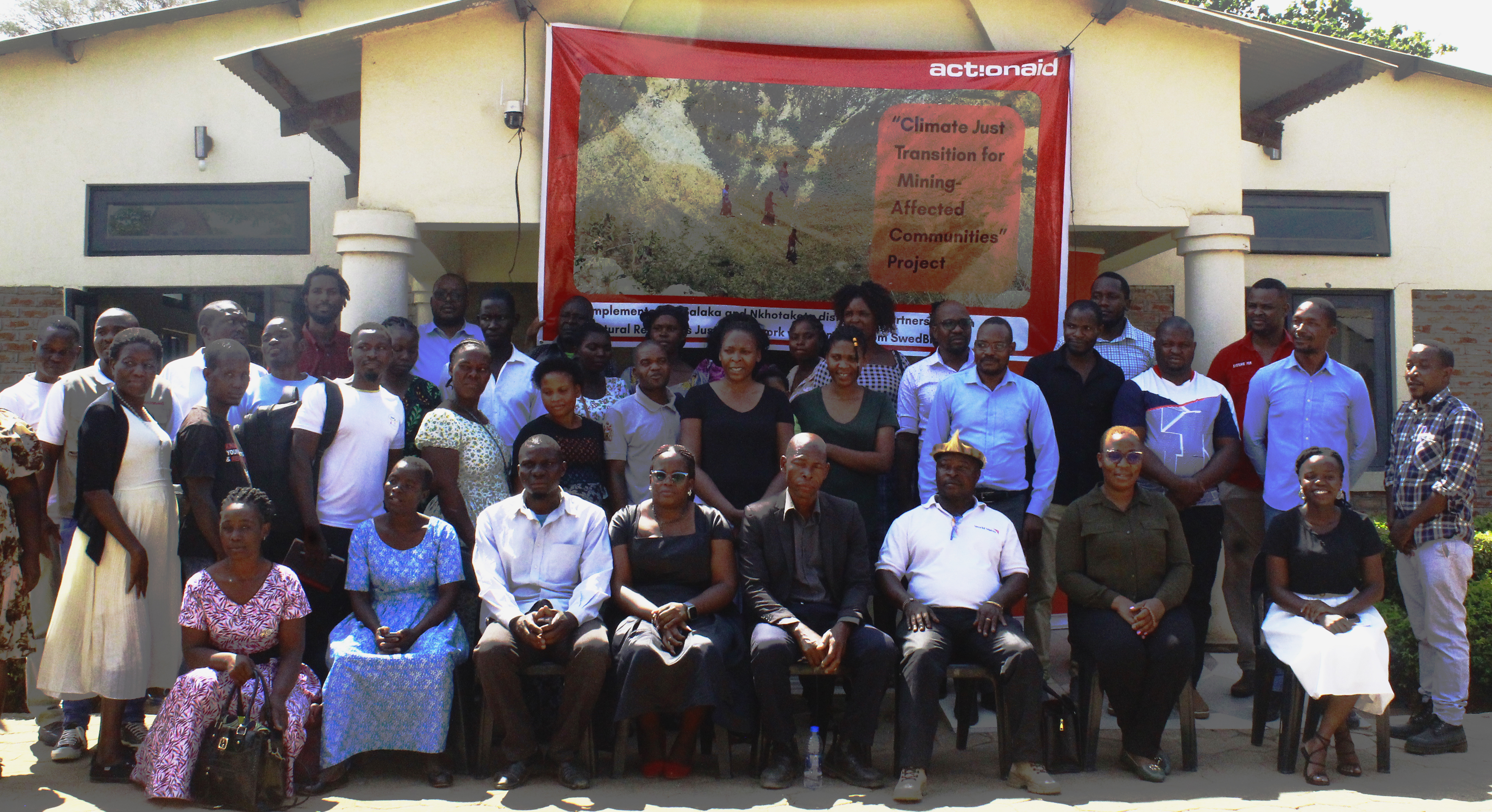
Mining & Trade News
Malawi Online News
Top Stories
Mining
Community pleads for accountability on mining issues in Balaka
November 14, 2025 / Modester Mwalija

Group picture of the particpants at the meeting
Communities in Balaka District have raised concerns over environmental degradation, water pollution and limited community benefits from mining activities in their areas, calling for transparency and accountability from both mining companies and government authorities.
The concerns were voiced during a meeting at Balaka District Town Hall Meeting, organized by ActionAid Malawi in collaboration with the Natural Resources Justice Network (NRJN) under the Climate Just Transition for Mining-Affected Communities Project.
The meeting brought together communities and duty bearers from Traditional Authorities Chathunya, Phalula, and Nsamala to discuss challenges resulting from mining activities and agree on practical solutions for fair and climate-just practices in the sector. ActionAid Malawi Project Officer Charles Fines Phiri said the meeting aimed to bridge the gap between affected communities and authorities in the mining value chain.
Phiri said: “The main purpose of this meeting was to bring together duty bearers and the communities affected by mining activities.”
“We have identified several challenges, including environmental degradation and gender inequalities in the sharing of mining dividends. Youth and women are marginalized and getting very little from these activities.”
He expressed concern over serious environmental risks in the district, citing mercury pollution in one of the rivers under Traditional Authority Phalula.
“The pollution comes from the use of mercury in gold processing, which is harmful to people, animals and plants in the area,” he said. Phiri said the town hall discussions resulted in positive progress, as communities openly shared their experiences and authorities responded with timelines to address the issues raised.
“Duty bearers have committed to take action and communities are waiting patiently to see change on the ground,” he said.
The one-year project, funded by SwedBio runs from January 2025 to January 2026, targeting over 800 beneficiaries across Balaka and Nkhotakota districts. A community representative, Alena Maseko from Kangamkunde Village under T/A Chathunya, expressed mixed feelings about the conduct of Lindian Resources, a company operating in the area.
Maseko said: “We are aware of the environmental effects of the mining activities, especially dust from the road construction near our homes.”
“The company repaired our broken water pipes after complaints, but the dust problem persists and is endangering our health.” She added that despite promises to reduce dust by watering roads daily and providing milk to nearby residents to mitigate dust inhalation risks, the company has not fully honored these commitments.
She said: “They said they would be watering the roads daily and giving milk to residents, but this has not been happening.”
“Sometimes it takes two or more days without them watering the roads.” Maseko also raised questions over the status of the Kangankhunde Forest, which the community has long relied on for tree planting, bamboo and beekeeping.
“The forest was listed as a village forest in the second phase of compensation by Lindian, but we do not know who will receive the compensation or how it will be calculated,” she explained.
The Balaka Town Hall Meeting is part of ActionAid’s broader initiative to promote a climate-just transition in Malawi’s mining and energy sectors by enhancing community participation, gender equity, and transparency.
Balaka is a beehive of mining activities. Besides the Australian Company Lindian Resources pursuing one of the largest rare earth resources at Kangankunde, Portalnd Cement is also mining limestone at Chenkumbi where it has developed a clinker plant. There is also small scale limestone and alluvial gold mining in the district.































